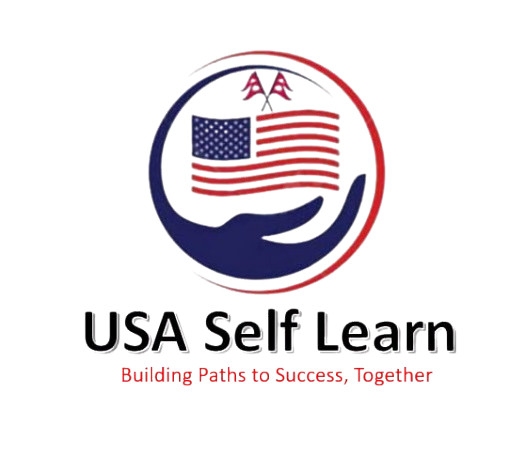Moving to a new country for education is both exciting and challenging. As an international student in the United States, you'll encounter a unique blend of opportunities and obstacles that will shape your academic journey and personal growth. This comprehensive guide aims to help you navigate the complexities of American culture, education, and daily life to make your transition smoother and more rewarding.

Understanding Cultural Differences
Culture shock is a natural part of the international student experience. American culture may differ significantly from your home country in terms of social norms, communication styles, and daily practices. Being aware of these differences can help you adapt more quickly:
Direct Communication
Americans tend to value direct communication. They often say exactly what they mean and expect others to do the same. This directness might feel abrupt if you come from a culture that values indirect communication or saving face. Remember that this directness is rarely meant to be rude—it's simply the preferred communication style.
Informality and Friendliness
Many international students are surprised by the casual nature of American interactions. Professors might ask you to call them by their first name, strangers may strike up conversations in public places, and service staff often engage in friendly small talk. This informality doesn't indicate a lack of respect but rather reflects American values of equality and approachability.
Personal Space and Privacy
Americans typically maintain a larger personal space bubble than people from many other cultures. Standing too close during conversation might make them uncomfortable. Similarly, asking personal questions about age, marital status, or income early in a relationship may be considered intrusive, even if these topics are standard conversation in your home country.
"Understanding cultural differences isn't about changing who you are—it's about developing the flexibility to navigate different social contexts while staying true to your own values."
Navigating the American Education System
The American higher education system may differ significantly from what you're accustomed to. Understanding these differences will help you succeed academically:
Active Participation
American classrooms often emphasize student participation and discussion. Your grade may partially depend on how actively you contribute to class discussions. If you come from an educational system where students primarily listen to lectures, this expectation might feel uncomfortable at first. Start by preparing questions before class and gradually work up to sharing your perspectives.
Critical Thinking
American professors value critical thinking over memorization. You'll be expected to analyze information, form your own opinions, and support them with evidence. Assignments often ask you to evaluate different perspectives rather than simply repeating what you've learned. Don't be afraid to respectfully challenge ideas—this is a valued skill in American academia.

Academic Integrity
American universities have strict policies regarding plagiarism and academic dishonesty. What constitutes plagiarism may differ from your home country. Always cite your sources properly and understand that collaborative work has clear boundaries. When in doubt, ask your professor or teaching assistant for clarification.
Office Hours
Professors set aside specific times, called office hours, when students can visit them to ask questions or discuss course material. Taking advantage of office hours shows initiative and can help you build relationships with your professors. Don't hesitate to use this resource—it's there for your benefit.
Finding Suitable Housing
Securing comfortable and affordable housing is crucial for your well-being and academic success. Here are your main options:
On-Campus Housing
Many universities offer on-campus housing options for international students. These typically include dormitories (shared rooms with communal bathrooms and kitchens) or apartment-style housing. Benefits include proximity to classes, built-in community, and included utilities. However, on-campus housing can be more expensive and may close during breaks.
Off-Campus Apartments
Renting an apartment off-campus often provides more space and privacy at a potentially lower cost. However, you'll need to consider transportation to campus, utility costs, and furnishing the space. Many students share apartments to reduce costs. When signing a lease, make sure you understand all terms, including security deposits, lease duration, and policies regarding subletting.
Homestays
Living with an American family can provide cultural immersion and a supportive environment. Homestays typically include a private bedroom, shared common spaces, and sometimes meals. This option can help you improve your English skills and learn about American customs firsthand.

Managing Your Finances
Financial management is a critical skill for international students. Here's how to handle your finances effectively:
Banking
Open a U.S. bank account soon after arrival. This will make it easier to receive funds, pay bills, and avoid foreign transaction fees. Most universities have partnerships with local banks that offer student-friendly accounts. You'll typically need your passport, student ID, and proof of address to open an account.
Budgeting
Create a realistic budget that accounts for tuition, housing, food, transportation, books, healthcare, and personal expenses. Track your spending using apps or spreadsheets to ensure you're staying within your means. Remember to factor in unexpected costs and emergency funds.
Work Opportunities
F-1 visa students can work on campus for up to 20 hours per week during the academic year and full-time during breaks. After your first academic year, you may be eligible for Curricular Practical Training (CPT) or Optional Practical Training (OPT), which allow you to work off-campus in positions related to your field of study.
Scholarships and Financial Aid
Research scholarships specifically available to international students. These may be offered by your university, private organizations, or your home country's government. While federal financial aid is generally not available to international students, some universities offer institutional aid or payment plans.
Healthcare and Wellness
Maintaining your physical and mental health is essential for academic success:
Health Insurance
Most universities require international students to have health insurance. Your institution may offer a student health insurance plan, or you can purchase one from a private provider. Understand what your insurance covers, including preventive care, emergency services, and mental health support.
Campus Health Services
Familiarize yourself with your university's health center, which typically provides basic medical care, vaccinations, and health education. Many also offer counseling services to support students' mental health.
Self-Care
Adjusting to a new country while managing academic demands can be stressful. Prioritize self-care by maintaining a balanced diet, regular exercise, adequate sleep, and social connections. Don't hesitate to seek help if you're struggling with homesickness, anxiety, or depression.

Getting Around
Understanding transportation options will help you navigate your new environment:
Public Transportation
Many U.S. cities have public transportation systems, including buses, subways, or light rail. These are typically the most affordable options for students. Check if your university offers free or discounted transit passes.
Ridesharing and Taxis
Services like Uber and Lyft provide convenient transportation when public transit isn't available or practical. While more expensive than public transportation, they can be cost-effective when shared with other students.
Bicycles
Many campuses are bicycle-friendly, and cycling can be an economical and healthy transportation option. Some universities offer bike-sharing programs or discounted bike purchases for students.
Driver's License
If you plan to drive in the U.S., research the requirements for obtaining a driver's license in your state. You may be able to use an international driving permit temporarily, but most states require residents to obtain a local license after a certain period.
Building Your Community
Creating a support network is vital for your adjustment and happiness:
International Student Services
Your university's international student office is a valuable resource for information, support, and community. They typically offer orientation programs, cultural events, and advising on immigration matters.
Student Organizations
Join clubs and organizations related to your interests, culture, or academic field. These provide opportunities to meet like-minded people and develop leadership skills. Many universities have international student associations or cultural clubs that can help you connect with others from your region.
Community Involvement
Volunteering or participating in community events can help you feel more connected to your new home while making a positive impact. These experiences also provide opportunities to practice English and learn about American culture outside the academic environment.

Understanding Legal Responsibilities
Maintaining your legal status is crucial for your stay in the United States:
Visa Compliance
Understand and follow the regulations associated with your student visa. This includes maintaining full-time enrollment, limiting work hours, and keeping your passport and visa documents current. Your international student advisor can help you navigate these requirements.
Tax Obligations
International students are required to file U.S. tax returns, even if they have no income. Your university likely offers tax workshops or resources to help you understand your obligations.
SEVIS Updates
Keep your information in the Student and Exchange Visitor Information System (SEVIS) current. Report changes in address, academic program, or enrollment status to your designated school official (DSO) within the required timeframe.
Embracing the Journey
Your time as an international student in the United States is a unique opportunity for personal and academic growth. While challenges are inevitable, approaching them with resilience, curiosity, and openness will help you thrive. Remember that seeking help when needed is a sign of strength, not weakness.
By understanding cultural differences, navigating the academic system, managing practical matters, and building a supportive community, you'll be well-equipped to make the most of your American education experience. The skills you develop during this time—adaptability, cross-cultural communication, independence—will serve you well throughout your life and career.
Welcome to this exciting new chapter. Your journey as an international student in the United States promises to be transformative, challenging, and ultimately rewarding.




